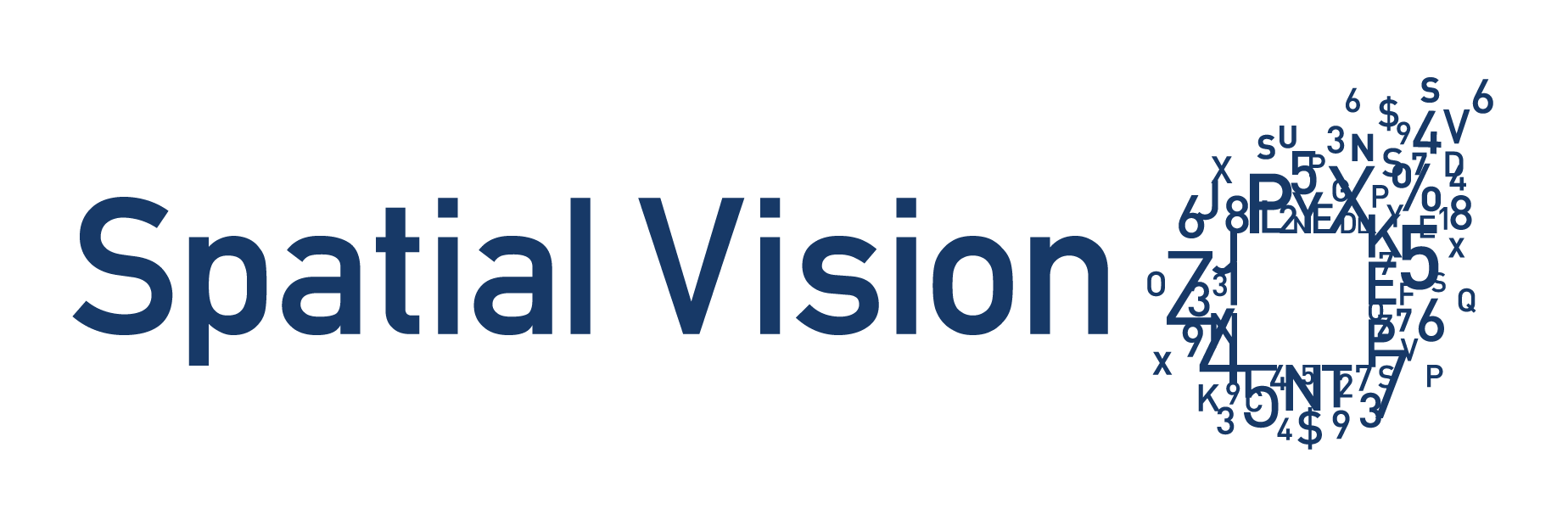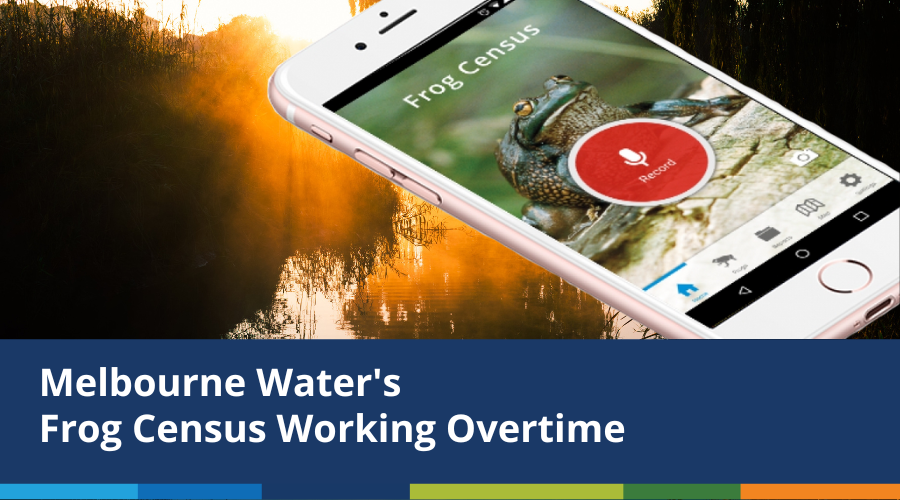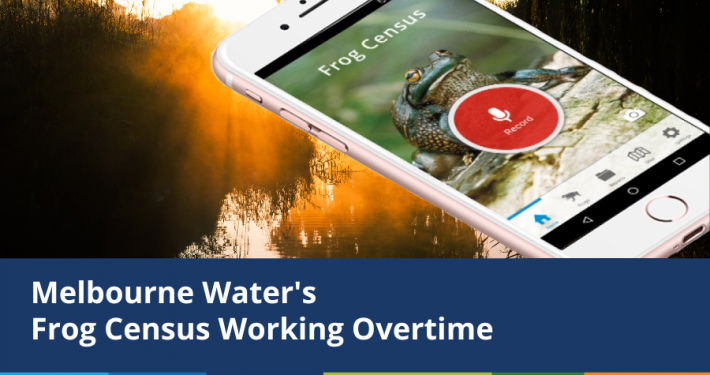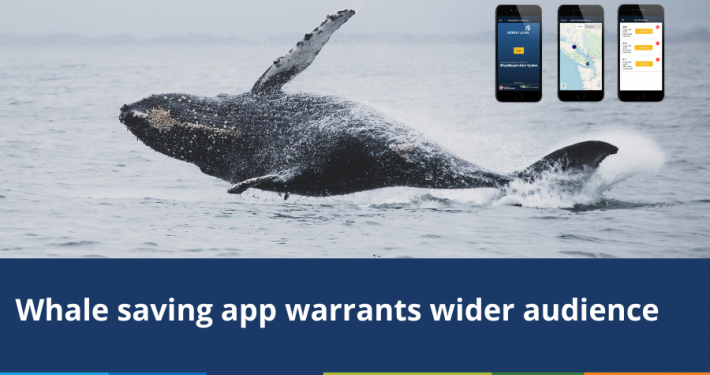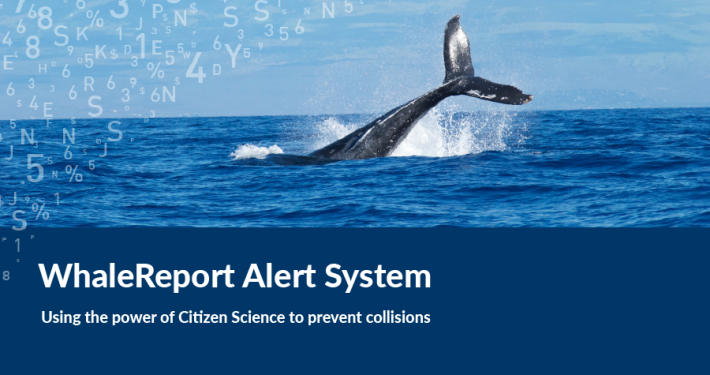Did you know frogs drink and breathe partly through their skin? Unfortunately, the flipside of this incredible skill is these fascinating amphibians are highly vulnerable to pollution, drought and climate change.
Being able to track frog population and distribution accurately and efficiently over time serves as a barometer to changes in the health of wetlands, waterways and the wider environment. So, for water management authorities such as Melbourne Water, our precious frogs play an important role – a bit like a (croaky) canary in a coal mine!
An app for everyone
Established in 2001, Melbourne Water’s Frog Census program also engages the community around the value of, and threats to Victorian frog species. For some time the program required everyday Melburnians to record frogs using various audio recording devices, then email their findings to Melbourne Water for verification. In a bid to encourage more frog enthusiasts, streamline the process and better harness the data provided, Melbourne Water contracted Spatial Vision in 2016 to build a Frog Census app.
Great care was taken to ensure the collection process entailed just a few steps and was intuitive for the casual nature-goer. Notwithstanding, an array of features are included that enable citizen scientists to provide optimal research value from their close encounters of a frog kind.
“Since the release of our Frog Census app in 2016 we have seen a dramatic increase in the number of people getting involved in recording frog calls and sightings,” says Melbourne Water’s Waterwatch Coordinator, Naomi Dart. “The Frog Census app led to an increase of over 600% in submitted reports in its first season and has continued to see high levels of engagement.”
The Frog Census app was recognised by the IAP2 Core Value Awards in 2017, winning the environment category for Melbourne Water.
New features for frog finders
The initiative continues to intrigue more than just frog fanatics. Science students and primary schoolers are another captive audience of this charming learning experience. A recent addition to the app enables kids (of all ages) to earn ‘frog points’ to go towards achievement badges and resource rewards based on the number and quality of their reports.
In addition, the home screen refresh included a larger, clearer photo prompt alongside the record button, notifications on Melbourne Water frog related events, an enhanced frog encyclopedia and a new dark screen mode as part of an overall lift in aesthetic design.
The engaging downloadable encyclopedia features 16 local frog species, each with a call recording, description, habitat, distribution map and photo to assist users. A series of ’Frogging 101’ Youtube videos supports the app by providing useful planning, search, conservation and recording tips.
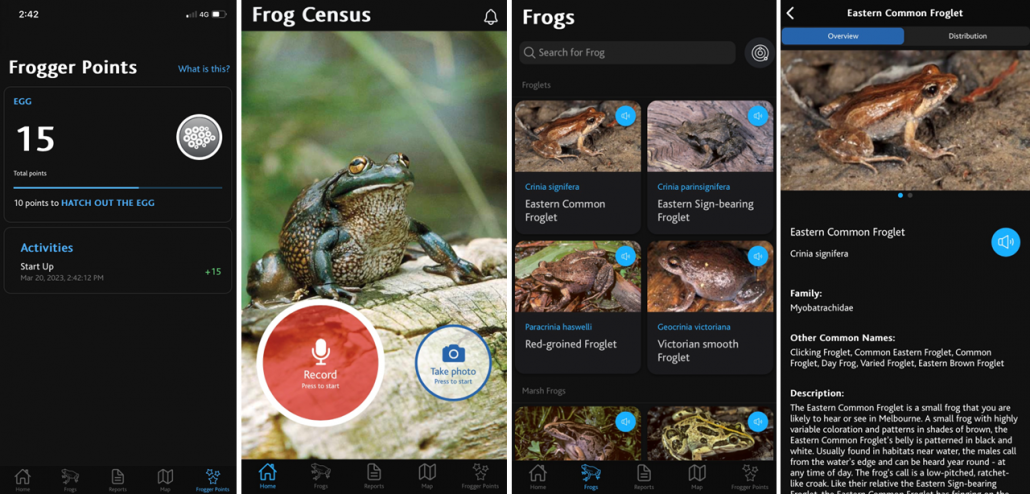
With a frog informed public on board, management authorities, researchers and the Melbourne Water Frog Census program all benefit. An admin portal for expert review of submissions facilitates a quicker and cheaper way to verify frog reports and provide feedback to volunteers. When reports are verified they appear on a public map within the app. This data is also used in waterway management and shared with the Victorian Biodiversity Atlas and CSIRO Atlas of Living Australia.
In addition, a robust offline mode for both Android and iOS ensure the functionality holds up in rural areas. Similar to the Lapis developed WhaleReport app, reports – including audio and photos – can be saved and sent when internet connection is restored. The app even features weather data tagging using client location, time of submission and the nearest Bureau of Meteorology data.
“This increase in data on local frog populations has been invaluable to inform our waterway management practices across the Melbourne region, and in finding new areas of threatened frogs for better protection and conservation actions,” adds Naomi.
So, who’s up for some serious frogging fun?
- Getting the most out of your GIS strategy & investment - July 24, 2024
- Climate Change & Homelessness: Understanding the Connection - July 24, 2024
- Navigating the complexity of geoscience data analysis - July 24, 2024
